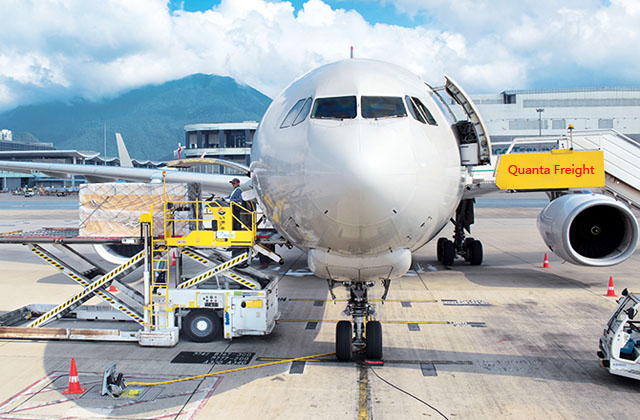
As it struggles to stay afloat in the face of tough Western sanctions on Russia, all-cargo airline Volga-Dnepr has narrowed its operations to supporting the Russian
supply chain into Asia with only Russian-made heavy freighters. According to a statement shared with FreightWaves, the Moscow government hired Volga-Dnepr
last month to provide it with five Ilyushin-76TD-90 four-engine jets for cargo transport to and from a handful of Asian and Middle Eastern countries. The deal will
run until the end of the year. Volga-Dnepr also has a dozen Soviet-era An-124 superfreighters in its fleet, which continue to operate on a limited basis for project
logistics customers. In mid-March, the company shut down two subsidiaries that relied on Boeing (NYSE: BA) aircraft due to sanctions against its leased aircraft
and the revocation of airworthiness certificates from aviation registries in Bermuda and Ireland. The Moscow contract, worth 9.5 billion rubles ($144 million), is
part of efforts to maintain access to vital goods such as medicines, medical equipment, food, electronics, consumer goods, equipment and spare parts after large
parts of Russia were cut off. Invade Ukraine's global economy. Volga-Dnepr will provide scheduled air cargo services from China, India, the United Arab Emirates,
Azerbaijan, Pakistan and Vietnam to Moscow and other cities. Co-founder Alexey Saikin said the company is also considering expanding its fleet by buying additional
An-124 and Il-76 aircraft, which would keep manufacturing workers in the country's struggling aviation industry employed. Moscow Mayor Sergey Sobyanin said,
"We are creating a new logistics corridor for almost everything Russia needs." Volga-Dnepr previously worked with the city's transportation department in 2020 toprovide personal protective equipment and other items to combat COVID-19. After the invasion of Ukraine, the United States, the European Union, Canada and other
countries banned Russian aircraft from their airspace and airports. The United States and the European Union also prohibit the transfer of parts and technology needed
to maintain aircraft from Boeing (NYSE: BA), Airbus and other manufacturers. Under U.S. export controls, Russian airlines must also obtain a license to use U.S.-origin
aircraft for any flights. The European Union has asked aviation leasing companies to end their leases with Aeroflot. Due to U.S. and European sanctions, Volga-Dnepr's
scheduled airline AirBridgeCargo (ABC) no longer flies its 17 Boeing 747 freighters, including 13 new 747-8s and one Boeing 777. Subsidiary Atran Airlines, which uses
four Boeing 737-400s and two 737-800 narrow-body aircraft to handle regional flights to Europe and Asia, has also been grounded. Earlier this month, CargoLogic
Germany filed for bankruptcy protection as it seeks new investors in order to restart operations, according to a report from Simple Flying. The company is focused on
the European express market and has a fleet of four leased Boeing 737-400 standard freighters, registered in the UK and owned by Isaykin, who has dual Russian and
Cypriot citizenship. Sister company CargoLogicAir, based at London Stansted Airport, has also ceased operations. The elimination of Volga-Dnieper aircraft from the
market reduced shippers' air cargo capacity at a time when supply was still tight due to reduced passenger flights due to COVID-19, thereby preventing a sharp drop
in freight rates as demand weakened. AerCap, the world's largest aircraft leasing company, sued Volga-Dnepr last week for $427 million for not returning eight Boeing
planes, Law360 reported. According to London documents reviewed by the publication, Volga-Dnepr allegedly told AerCap (NYSE: AER) that it was trying to return the
plane but needed approval from Russian customs authorities, which was never granted. AerCap alleges that Volga-Dnepr continues to use the aircraft in Russia while
refusing to pay rent. The Kremlin essentially impounded Western planes in retaliation for the sanctions, and the law allows Russian airlines to transfer Western-made
planes to Russia's aviation registry and fly domestic routes using foreign aircraft. Under international law, an aircraft must be deregistered from the original registry
and the owner must give permission before it can be placed in another registry. Before the Russian invasion, Dublin-based Aercap leased 135 aircraft with Aeroflot,
or about 5 percent of its fleet by book value. The company's first quarter report on May 17 confirmed that it took back 22 aircraft that were outside Russia when
sanctions were imposed, but 113 remained in the country. A full write-off of assets in Russia and Ukraine would cost $2.4 billion.
Aercap said it had filed insurance claims for about $3.5 billion worth of aircraft and engines left in Russia.